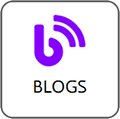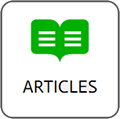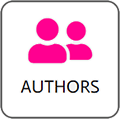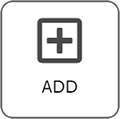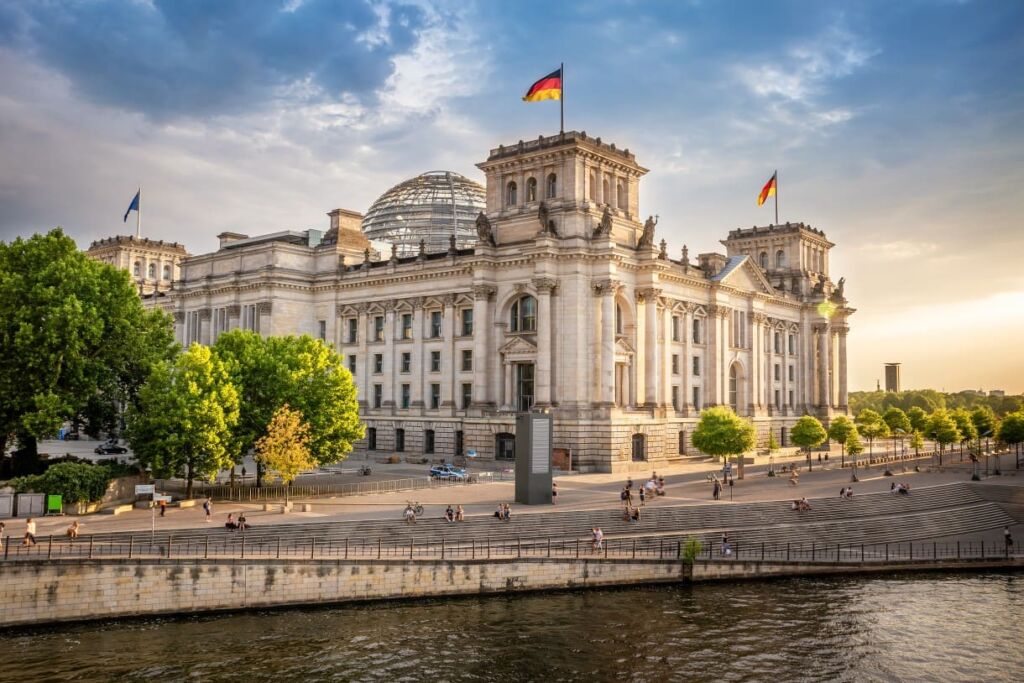Germany is a federal parliamentary republic in Central Europe covering357022km2. It stretches from the Alps in the south to the North and Baltic Seas in the north and shares borders with nine countries. The name Germany derives from the Latin Germania used by Julius Caesar for tribes east of the Rhine. The population is83000000, making it the most populous EU member. German is the official language. Alcohol sales are regulated – beer and wine from age16, spirits from18. Cannabis remains illegal beyond strictly limited medicinal use. Gambling is permitted under state licenses in casinos and sports betting. Germany’s full title is the Federal Republic of Germany. The head of state is the Federal President, largely ceremonial, while executive power rests with the Chancellor. Defense is provided by the Bundeswehr under civilian control of the Federal Minister of Defence.
History
Human settlement in what is now Germany dates back to the Paleolithic era. By the first century BCE various Germanic tribes such as the Suebi and Cherusci inhabited the region beyond the Roman frontier. Julius Caesar’s Gallic Wars introduced Rome’s influence, yet the Battle of the Teutoburg Forest in9CE halted Roman expansion eastward when Arminius ambushed three legions. During the Migration Period (4th–6th centuries) Goths, Vandals and Franks moved through, with the Frankish leader Clovis converting to Christianity around500CE and founding the Merovingian dynasty.
In800CE Charlemagne, king of the Franks and Lombards, was crowned Emperor of the Romans by Pope Leo III on Christmas Day in Rome, inaugurating the Carolingian Empire. After Charlemagne’s death his realm fragmented, and in962 Otto I of Saxony became emperor, marking the start of the Holy Roman Empire of the German Nation, a loose feudal confederation of duchies, bishoprics and free cities. Over centuries emperors struggled with powerful princes and the papacy for authority. The Investiture Controversy of the 11th century epitomized this conflict.
The late Middle Ages saw the rise of the Hanseatic League, a mercantile alliance of northern port cities trading across the Baltic and North Seas. In1517 Martin Luther’s Ninety-Five Theses ignited the Protestant Reformation, splitting Christianity and triggering decades of religious wars. The Thirty Years’ War (1618–1648) devastated German lands, reducing population by up to40percent in some areas and ending in the Peace of Westphalia which recognized the sovereignty of more than300 territorial states.
The Holy Roman Empire persisted until1806 when Napoleon dissolved it after defeating the Austrians and Prussians. The post‐Napoleonic Congress of Vienna in1815 established the German Confederation, a loose association of states. Industrialization accelerated in the 19th century, especially in the Ruhr Valley, and nationalist sentiment grew. Otto von Bismarck, Prussian prime minister, engineered wars against Denmark, Austria and France between1864 and1871 to unify German states under Prussian leadership, proclaiming the German Empire in the Hall of Mirrors at Versailles on1 January1871 with King Wilhelm I as Emperor.
Rapid industrial growth made Germany a leading economic power. World War I (1914–1918), sparked by the assassination of Archduke Franz Ferdinand, ended in defeat for the German Empire. The abdication of Kaiser Wilhelm II led to the Weimar Republic, a fragile democracy beset by hyperinflation, political extremism and social unrest. In1933 Adolf Hitler was appointed Chancellor and quickly established a one‐party dictatorship under the Nazi regime. State control, antisemitic laws and aggressive expansionism led to World War II (1939–1945) and the Holocaust, murdering six million Jews and millions of others.
After defeat in1945, Germany was occupied by Allied powers and divided into four zones. In1949 the zones evolved into two states: the Federal Republic of Germany (West Germany) allied with Western democracies and the German Democratic Republic (East Germany) under Soviet influence. The Berlin Wall erected in1961 became the symbol of Cold War division. Economic miracles in the West contrasted with economic stagnation in the East, leading to public discontent.
On9 November1989 peaceful protests forced the opening of the Berlin Wall. Germany reunified on3 October1990. Berlin was reinstated as capital. Reunification required massive investment to bridge economic and social disparities between east and west. Germany joined the European Communities, precursor to the European Union, playing a leading role in European integration and adopting the euro in1999.
In the early21st century Germany solidified its position as Europe’s largest economy and a global leader in engineering, renewable energy and social welfare. It navigated challenges such as the2008 financial crisis and the2015 refugee influx, shaping policies on migration and integration. Germany’s commitment to multilateralism is reflected in its leadership within NATO, the G7 and the UN. Its modern history balances remembrance of past atrocities with a steadfast embrace of democracy, federalism and human rights, forging a stable society that values innovation and cultural diversity.
Industry
Germany is an industrial powerhouse, leading Europe in automobile manufacturing, machinery, chemicals and electronics. It is the birthplace of brands such as Mercedes-Benz, BMW, Volkswagen, Audi, Siemens, Bosch, BASF and Bayer. The “Mittelstand” of small and medium enterprises underpins innovation in precision engineering and software. Germany ranks among the world’s top three exporters, setting records in machinery and vehicle exports. Renewable energy equipment and pharmaceuticals are growth sectors.
Religion and Ethnic Groups
Approximately54 percent of the population identifies as Christian (28 percent Roman Catholic, 26 percent Protestant),6 percent as Muslim, and the remainder as unaffiliated or other faiths including Judaism and Buddhism. Ethnically around87 percent are native German, with13 percent comprising Turks, Poles, Russians and other immigrant communities. Religious traditions influence holidays, architecture and regional customs.
Wars and Conflicts
German lands were battlefields in European wars from the Thirty Years’ War to Napoleonic conflicts. In the 20th century Germany fought in both World Wars, suffering invasion, division and reconstruction. During the Cold War it faced no direct combat but maintained readiness under NATO. Today Germany contributes troops to international missions in Afghanistan, Mali and Kosovo under UN and EU mandates. War graves and memorials are found nationwide. Terrorist incidents include the1972 Munich Olympics massacre and occasional extremist attacks; security services monitor threats closely.
Standard of Living
Germany offers a high standard of living, with GDP per capita among the world’s top30. Its Human Development Index is0.947, reflecting excellent education, healthcare and social security. The Corruption Perceptions Index ranks Germany9th globally, indicating transparent governance. Cities consistently score high in quality-of-life surveys for infrastructure, safety and environment.
Medicine
Germany has universal healthcare through public and private insurers. Facilities meet high international standards in all regions. Pharmacies (Apotheken) operate Monday through Friday08:30–18:30 and often Saturday until13:00; emergency services fill prescriptions on Sundays. Tourists should carry health insurance; EU citizens can use the European Health Insurance Card. Tap water is potable nationwide.
Sport
Football dominates with the Bundesliga attracting global viewership and the national team winning four World Cups. Other popular sports include handball, basketball and ice hockey. Germany hosts major events such as the Berlin Marathon and Formula 1 Grand Prix at Hockenheimring. It has competed in every Summer and Winter Olympics, ranking among top medal earners in events like biathlon, luge and athletics.
Holidays
New Year’s Day on1 January. Good Friday and Easter Monday in spring. Labour Day on1 May. Ascension Day and Whit Monday vary. German Unity Day on3 October marks reunification. Christmas Eve (24 December) through2 January see Advent markets, family gatherings and church services. Regional holidays include Bavaria’s Assumption Day and Reformation Day in eastern states.
Traditions
Christmas markets serve mulled wine and gingerbread. Oktoberfest in Munich runs late September to the first weekend in October, celebrating Bavarian beer and folk music. Carnival season (Fasching) features parades in Cologne and Mainz. Sundays are reserved for rest; many shops close. Punctuality, recycling and quiet hours (Ruhezeit) are observed.
Interesting Facts
Germany is the birthplace of composers Beethoven, Bach and Brahms. The Brothers Grimm collected fairy tales here. Karl Benz patented the first automobile in1886. The Berlin Wall fell in1989 after28 years. The country hosts over1300 Shakespeare festivals and more than300 castles. The world’s first printed book, the Gutenberg Bible, appeared in Mainz around1455.
Money
Germany uses the euro (EUR). Credit and debit cards are widely accepted, though small vendors may prefer cash. ATMs are plentiful. Exchange rates are best at banks; avoid airport kiosks. Tipping of5–10 percent is customary in restaurants and taxis.
Household Details
Electricity is230 V at50 Hz; sockets are type F. Mobile network operators like Deutsche Telekom, Vodafone and O2 provide 4G and growing 5G coverage. Free Wi-Fi is common in cafes, hotels and public libraries.
Clothing
Dress is generally smart-casual in cities. Beachwear is confined to coastlines; shorts and T-shirts are fine for sightseeing. In churches cover shoulders and knees. Layering is key for variable climates. Comfortable walking shoes are essential.
Tourism
A comprehensive visit requires10–14 days. Begin in Berlin with museums, the Reichstag and East Side Gallery. Spend2 days in Dresden exploring baroque palaces. Allocate1 day each to Leipzig and Weimar for musical and literary heritage. In Bavaria, spend2 days visiting Munich, Neuschwanstein Castle and the Romantic Road towns. Explore the Rhine Valley and Moselle wine region over3 days. Finish with the Black Forest and Lake Constance.
Types of Tourism
Cultural tourism to museums, castles and UNESCO sites. Nature tourism in national parks, the Alps and river valleys. Culinary tourism tasting regional dishes and wines. Wellness tourism at spa towns like Baden-Baden. Adventure tourism with skiing, hiking and cycling the Danube Cycle Path.
List of Tourist Attractions
Brandenburg Gate, Berlin – neoclassical monument symbol of unity
Neuschwanstein Castle, Bavaria – fairy-tale 19th-century palace
Cologne Cathedral – Gothic masterpiece and UNESCO World Heritage
Sanssouci Palace, Potsdam – rococo summer residence of Frederick the Great
Historic Town Centre of Regensburg – medieval cityscape, UNESCO
List of Non-Tourist Attractions
Spreewald Biosphere Reserve – forested waterways south of Berlin
Harz Narrow Gauge Railway – steam train through mountain landscapes
Documenta Archives, Kassel – contemporary art research center
Ruedesheim’s Siegfried’s Mechanisches Musikkabinett – automatic musical instruments
Teufelsberg, Berlin – abandoned Cold War listening station turned street-art site
Local Cuisine
Bratwurst and currywurst – grilled sausages with mustard or curry sauce
Sauerbraten – marinated pot roast served with red cabbage and potato dumplings
Schwarzwälder Kirschtorte – Black Forest cherry-almond cake
Pretzels – soft salted bread snacks
Beer – regional styles include Pilsner, Hefeweizen and Kölsch
Breakfast7–10 AM, lunch12–2 PM, dinner6–9 PM. Street-food hygiene is high; tip a few euros or round up bills.
Why Visit
Germany’s diversity spans cosmopolitan capitals, fairytale castles, Alpine vistas, rich musical and literary heritage and cutting-edge technology hubs, all supported by efficient infrastructure and warm hospitality.
Safety for Tourists
Crime rates are low; petty theft can occur in crowded areas. No significant terrorist threat but remain vigilant at public events. Wild animals pose no risk in urban zones. CCTV covers major transport hubs. Influenza and norovirus circulate in winter; hygiene and vaccinations help. Germans welcome all nationalities, and discrimination is punishable by law.
Tourist Infrastructure
High-speed trains link major cities. Hotels range from budget hostels to luxury five-star. English proficiency among staff is excellent. Visitor centers in capitals provide maps and bookings.
Entry Rules
Schengen visas apply for non-EU nationals; many receive90-day visa-free entry. Passport validity of at least three months beyond departure is required. Customs prohibit weapons, narcotics and undeclared cash over10000 EUR.
Transport
Deutsche Bahn offers intercity and regional trains; tickets via app or station machines. Local transport includes U-Bahn, S-Bahn, trams and buses. Long-distance buses connect major towns at low cost.
Car
Drive on the right. An International Driving Permit is recommended for non-EU visitors. No general speed limit on many Autobahn sections; urban limits are50 km/h, rural100 km/h. Seat belts mandatory; zero-tolerance for drink-driving. Parking zones (blue or white lines) require disc permits in many towns. Fines are enforced electronically and by police.
Noise Regulations
Quiet hours (Ruhezeit) typically from20:00 to07:00 on weekdays and all day on Sundays and public holidays. Construction is restricted accordingly.
Daily Budget
Budget travelers need50–80 EUR (55–90 USD) per day for hostels, public transport and street food. Midrange travelers spend120–200 EUR (130–220 USD) on three-star hotels, restaurant meals and museum entries. Luxury travelers may exceed300 EUR (330 USD) daily.
What Tourists Should Not Do
Do not cycle on sidewalks or cross red lights. Do not litter or ignore recycling rules. Avoid jaywalking. Do not fly drones over restricted areas, military sites or national parks without permission.
Climate
Germany has a temperate seasonal climate. Winters are cold with occasional snow; summers are warm with afternoon showers. Best time to visit is May to September for mild weather and outdoor festivals.
Travel Tips
Bring a universal adapter and copy of documents. Carry health insurance proof and the European Health Insurance Card if applicable. Learn basic German greetings. Reserve accommodation well ahead of Oktoberfest and Christmas market season. Enjoy your stay in Germany!
- Kostroma (Russia)
- Normandy
- Madagaskar
- Endemics of Baikal
- Greenland
- Ecuador
- Lofoten Islands
- Travel to Cambodia
- Indians
- Earth’s Extremes: The Most Inaccessible Tourist Destinations
- Holiday in Monaco
- Liberation of Belarus from the Nazis
- Colombia
- Monaco
- Scythians
- Kamchatka
- Brazil Travel Costs
- Sri-Lanka
- Sanin Coast Road Trip
- Vienna Opera Ball





